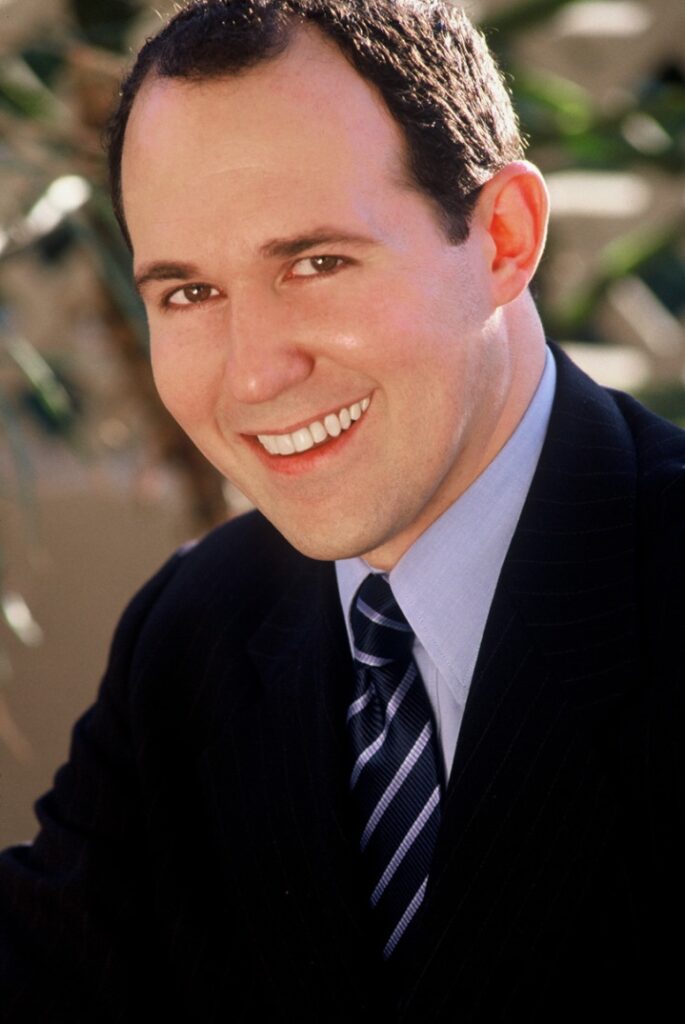
Raymond Arroyo is managing station editor/lead anchor of a television program that reaches a worldwide audience. Off-air he writes books and produces musicals. His charitable work aims to reduce illiteracy. (Does this man sleep?) We are fortunate to have had eight questions answered in great detail.
With all that you’ve got on your plate, you somehow manage to write bestselling books. What’s the routine?
I try to be very disciplined because I have no time to do otherwise. I write at night and on weekends mostly. I find that unlike non-fiction, writing fiction demands several hours at a stretch just to sink into the world that you’re writing. I carve out as much time as I can and try to stay attentive to those twists and turns of character that come once you are in the act of creating.
There’s a lack of imaginative, age-appropriate reads for kids. Your popular fiction series Will Wilder adds to the genre. How can young readers relate and learn? My first job as an author is to excite and entertain my audience. So I try to tell the best story I can and layer in as many imaginative elements and fun characters as I can. Kids love adventure, and so do I. That’s why you’ll find lots of mystery, monsters and a few miracles in my work. Some of the characters are very wise and like Will, I think kids can learn a lot from their instruction. But in a good story one learns by seeing rather than hearing. Every reader will take something different from the Will Wilder story and that’s how it should be. The author is only responsible for 50% of the experience. The audience needs to contribute the other half.
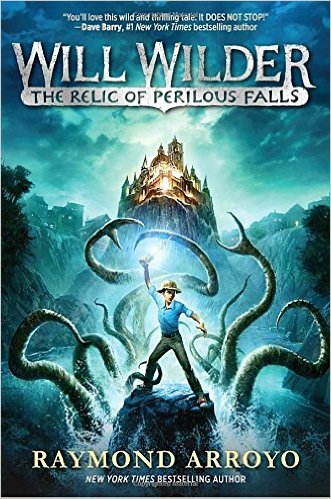
You’ve authored a biography of Mother Angelica, a Franciscan nun who founded the Eternal Word Television Network (EWTN). When did you come to know this remarkable woman?
I met Mother Angelica as a reporter, writing a feature piece on her more than 20 years ago. We hit it off instantly probably owing to the fact that Mother and I share an Italian heritage. She was also one of the funniest people I have ever known.
As anchor of a weekly news show that enters more than two-hundred-million homes across the globe, people trust you. From the ground up how’ve you grown and maintained your viewership?
It is a great honor for people to invite you into their homes. Three factors explain the growth and loyalty of our audience. First, I always shoot straight and tell the audience the truth, whether they want to hear it or not. (Mother Angelica used to say, “Those who tell you the truth love you. Those who tell you what you want to hear love themselves.”) Second, I’ve always strived to bring our audience the best guests anywhere; international newsmakers, actors, politicians, authors, religious leaders – people making a difference. Third, the viewers are part of my extended family in my mind so my team and I have always tried to not take ourselves too seriously and add in humor where ever possible. That’s it. Mother Angelica taught me a lot actually.
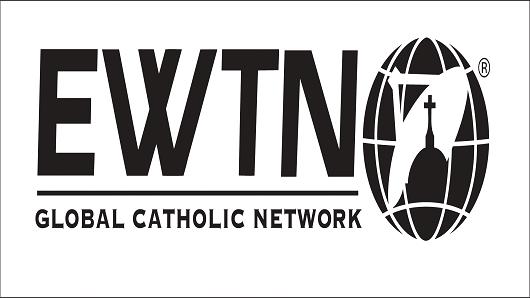
EWTN offers a Catholic alternative to mainstream cable channels. Why should folks watch you instead?
Because The World Over has guests and conversation you cannot find anywhere else. We have interviews and information that change lives – I’ve seen the letters. I’m very proud of what we’ve accomplished. Popes, presidents, legendary stars and the best authors on the planet have appeared on our show. You can’t find that anywhere. That’s why people watch.
Many if not most journalists today allow their biases to prevent accurate reporting. In what ways are you an exception?
Every journalist has biases. Our job is to keep those biases from blinding our judgment and to report fairly. We all make mistakes, and you have to trust your instincts sometimes. My news judgement was shaped by some incredible journalists and I make sure we are accurate and sharp in our reporting. We cover a lot of territory so my job is not only to get the information right, but to make sure the audience can understand at times very dense issues. I work really hard, as does my team. We try to provide smart, uplifting segments that challenge and inform. That’s what sets us apart. There are a lot of people sitting at shiny desks in TV land. Most are fed questions by their producers and couldn’t speak on a subject with authority if you threatened their family members. Research and time spent with the subject shows on air. We put the time in and strive for excellence.
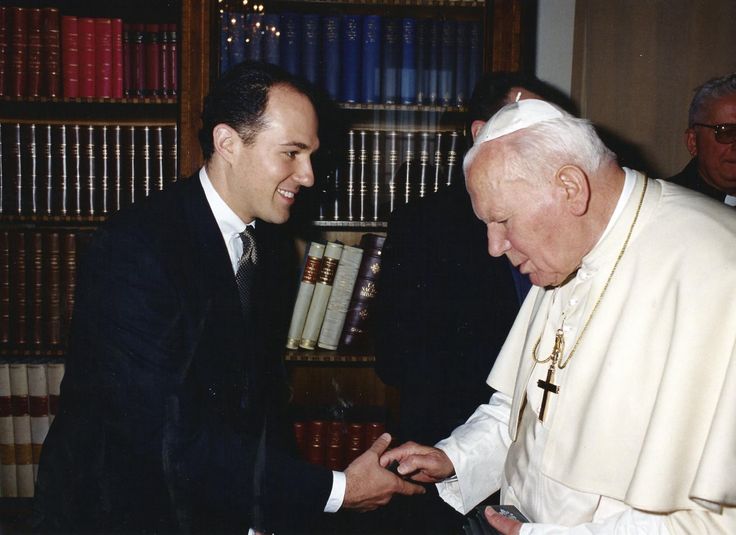
Of everyone you’ve interviewed, who’re your top-three favorite subjects, and why?
Pope Benedict and Mel Gibson were the most challenging interviews because they are both brilliant men in their respective disciplines – and neither particularly likes to be interviewed. What I love about those two interviews is that viewers got to see another side of them: the impish humor of Benedict and the smarts and passion of Mel. My other favorite was an interview I conducted with comic legend Jerry Lewis a few years ago. Jerry was candid, hilarious and very tender at moments. It’s just the kind of connection you want to capture on air. We are starved for human contact and true relationships today. Our show forces people to connect with others and we all learn a lot along the way.
Properly questioning guests on-air is a skill. What’s your approach?
This would take me several weeks and a college course to properly explain. In a nutshell, I love the people I interview. I love people and I am genuinely curious about them. My job is to put my interviews at ease and to allow them to shine. Too many interviewers make the interview about themselves which is a huge mistake. My interviews are about the person sitting opposite me. I spend tons of time on research and I write my own questions. I know what I am talking about when I sit opposite an interview and they can feel that. Since I have a low tolerance for lazy or unprepared (or stupid) people, I assume others feel the same. So I prepare a great deal before I dare sit with a Jerry Lewis or Pope Benedict. It’s about respecting them enough to be ready for the moment. I was also trained as an actor so I know when to pull back and give the interview space and when to lean in. There are two or three things happening during any interview. It’s a skill – and the more you do it well, the easier it becomes.
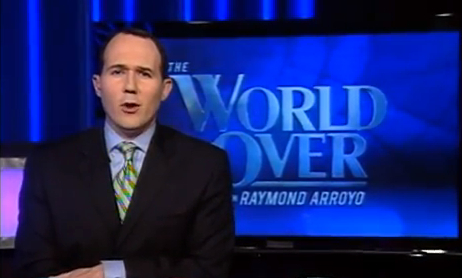
Biography
- Wikipedia entry
- EWTN’s The World Over Live television show
- Twitter feed @raymondarroyo
- Interview with America Magazine
- Storyented.com, an online effort promoting literacy
Books
- Will Wilder: The Relic of Perilous Falls
- Will Wilder: The Lost Staff of Wonders
- Of Thee I Zing: America’s Cultural Decline from Muffin Tops to Body Shots
- The Word of Promise: Complete Audio Bible
- Mother Angelica, Her Grand Silence: The Last Years and Living Legacy
- Mother Angelica: The Remarkable Story of a Nun, Her Nerve, and a Network of Miracles
- Mother Angelica’s Little Book of Life Lessons and Everyday Spirituality
- Mother Angelica’s Private and Pithy Lessons from the Scriptures
- The Prayers and Personal Devotions of Mother Angelica
Media Productions
- The World of Promise: Audio Bible
- Christmastime in New Orleans
- The Birth of Christ musical (narrated by actor Liam Neeson)
- Truth & Life: Dramatized Audio Bible (app)
Tease for Will Wilder: The Relic of Perilous Falls
“Will Wilder didn’t mean to unlock his otherworldly gift. But that is exactly what happens when Will ‘borrows’ a sacred relic that is believed to have protected the town of Perilous Falls for nearly a century. Even though his intentions are good, he unwittingly awakens an ancient evil endangering all of Perilous Falls.
“As boats sink and hideous creatures crawl from the rising waters, it is up to Will to confront a hellish enemy and set things right before it is too late. Along with his sweet (if lethal) great-aunt Lucille, the curator of a museum of supernatural artifacts, Will soon discovers a prophecy that will change his life forever (assuming his isn’t permanently grounded first).”
New York Times bestselling author Raymond Arroyo is host of The World Over on EWTN, which airs live Thursdays at 8 pm Eastern.
Want more? Read our Q&A with sports writer Peter Golenbock. You might also enjoy learning from historian Craig Shirley.